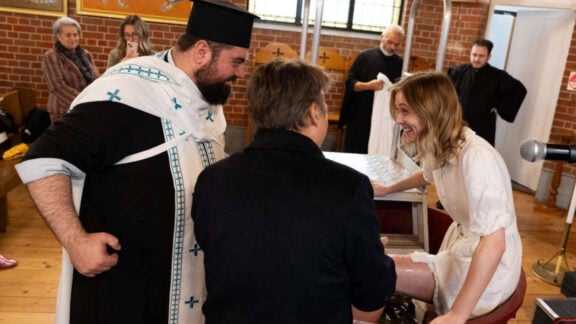It’s not good to have a family, be sick, young or poor. That’s the verdict many Australian mastheads have come to after Treasurer Joe Hockey delivered his first Federal Budget this week.
For the Greek Australian community, pensioners and the young will be the biggest affected, while families will have payments cut if they reach a certain threshold. All will now have to pay $7 to see the doctor, fuel will rise twice a year by 2-3 cents and going to university will cost more as universities are given free rein over charging what they like for courses.
Named as one of the toughest budgets since 1997, the Coalition has chosen to raise taxes and cut funding to fix the country’s billion dollar deficit, but hasn’t distributed the heavy lifting equally.
Those earning more than $180,000 will have a temporary tax of just 2 per cent for three years, while the unemployed under 30 will be on a compulsory waiting list for six months to receive benefits, and will be given no assistance if they don’t participate in the work for the dole scheme for 25 hours a week.
Pensioners will lose $876.20 or $1320.80 per couple when their seniors supplement gets scrapped from July, and the pension will be scaled back, as it will be decided with a twice yearly indexation linked to inflation instead of wages growth from 2017.
People will also be forced to work till 70 by 2035 as the pension age limit rises again.
The Australian Greek Welfare Society (AGWS) says its biggest clientèle is aged Greek Australians, and the added pressure from the budget won’t be welcome.
“Our biggest concern is for pensioners, who we believe are disproportionately unfairly hit by the budget measures,” AGWS CEO Voula Messimeri tells Neos Kosmos.
“CPI increases are usually lower than wage growth, so that’s a really huge blow for pensions.
“Another thing that is going to really impact negatively is the Medicare patient contribution.
“This is a really regressive step.”
It’s something Fair Go for Pensioners committee member Theo Nomikos did not want to accept.
“They’re punishing us, they’ve done nothing for pensioners, all they’re doing is chopping off [benefits],” he tells Neos Kosmos.
One of the positive measures the Budget has introduced for older Australians is a $10,000 incentive for businesses that hire older people out of work for six months.
Yet Mr Nomikos isn’t very happy with the incentive, as he believes it takes jobs away from the younger generation desperate to get into the workforce.
“They are taking unemployment benefits while we are working to pay for those benefits,” he says.
“Why don’t we give them the job and they work until they get the pension at 60 or 65?”
Now the young will be told to “earn or learn”, with some of the harshest policy hitting the unemployed under 30. They won’t receive any benefits for six months when they apply for the dole.
That is something AGWS says will be catastrophic for our community’s young.
“Essentially we’ve seen measures enforced on young people as if they deliberately stay on income support,” Ms Messimeri says.
“What is being asked with these types of measures is that families take up the slack again with a bigger burden put on parents.
“For younger people that don’t have that support I think there’s a real risk in their mental health and the vulnerability of becoming homeless.”
The young will also face higher university fees, with the government giving the green light for universities to set their own course fees. Government funded places will still exist, but students need to pay their way earlier and get slugged with a 6 per cent interest rate when they start earning more than $50,000.
The changes have 22-year-old politics student Sam Sofos worried.
“I am disappointed in the model we’re heading for, it’s more of an Americanised deregulation. It’s really bleak,” he tells Neos Kosmos.
“Those from a lower socio-economic background won’t be persuaded to seek higher education if it’s too expensive.”
For law student Yianni Kallianis, he says he’s lucky that he’ll be finishing up this year, and won’t be having to pay a university regulated fee on top of his HECS debt.
“It’s concerning because university fees now aren’t cheap, but because – especially in the law industry – there’s a real over supply of graduates. In that sense, if it is deregulated, prices will be driven up and fewer students will be doing it.”
The budget’s changes will be causing excess strain for community groups that are already buckling under demand.
For AGWS, volunteers and staff are already scratching their heads over how they will cope with a bigger backlog thanks to the budget when they are already catering to the needs of new migrants and an ageing population.
“We’re doing it really tough and we’re not able to respond to what the community wants, expects and needs,” Ms Messimeri says.
“This budget is not helping and this budget does not really have a strategy for a huge ageing population.”
Most of the budget will be coming into effect at the start of the new financial year in July, but could be met with strong opposition in the Senate.
“It will be interesting to see how the composition of the Senate after 1 July 2014 will affect the government’s ability to pass its budget measures into law,” HACCI writes to Neos Kosmos.
“We believe this will not be the first word (nor the last) on budget repair.”








